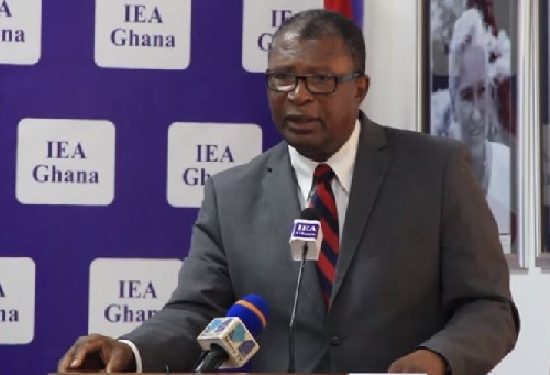The Institute of Economic Affairs (IEA) has sounded the alarm that Ghana could be compelled to return to the International Monetary Fund (IMF) for an 18th bailout if decisive structural reforms are not urgently implemented to address long-standing economic weaknesses.
Board Chairman of the IEA, Dr Charles Mensa, issued the caution during a roundtable discussion on “The Mining Regime in Ghana”, where he stressed that the nation’s persistent fiscal vulnerabilities were the result of poor resource governance and overdependence on external interventions.
“For the record, we have been to the IMF for the seventeenth time, asking for a bailout, meaning we have gone bankrupt seventeen times. Ghana is one of the largest gold-producing countries in the world, yet with all these resources, we keep going bankrupt. Why is that? It is because we have no control over our natural resources,” Dr Mensa lamented.
He argued that unless the government adopts bold, pragmatic measures to take control of natural resource wealth, strengthen domestic revenue mobilisation, and build resilience into the economy, Ghana will inevitably fall back into the cycle of unsustainable debt and bailouts.
“If we don’t own our resources, we will continue to operate under this same model, and very soon we will go to the IMF again for the 18th time,” he cautioned.
Ghana first turned to the IMF in 1966, after the overthrow of President Kwame Nkrumah by the National Liberation Council (NLC). The new military administration sought IMF and World Bank support to stabilise an economy strained by deficits and declining reserves. Subsequent interventions saw Ghana implementing structural adjustment programmes, debt rescheduling, and fiscal reforms — yet the country has repeatedly relapsed into crises, making it one of the IMF’s most frequent clients.
Currently, Ghana is under a $3 billion, three-year Extended Credit Facility (ECF), which began in 2023 and is expected to end in the first quarter of 2026. The programme aims to restore macroeconomic stability, curb debt distress, and rebuild investor confidence.
While implementation has so far been largely on track, experts warn that the real test will come after the programme ends. The challenge, they say, is whether Ghana can sustain fiscal discipline, manage debt prudently, and avoid the policy slippages that have historically dragged it back to the IMF.
Dr Mensa’s warning reinforces concerns that Ghana’s heavy dependence on commodity exports, combined with weak domestic revenue mobilisation and rising expenditure pressures, continues to undermine economic sovereignty.
He urged policymakers to reform the mining and natural resources sector to ensure the country derives maximum value from its wealth. “With proper management of gold, oil, and other natural resources, Ghana should not be struggling to pay its bills or running back to the IMF every few years,” he said.
As Ghana navigates its current IMF programme, the IEA insists that structural transformation, rather than temporary bailouts, is the only way to break the cycle of economic distress and dependency.
Click the link Puretvonline.com | WhatsApp Channel to join the WhatsApp channel
GOT A STORY?
Contact/WhatsApp: +233243201960 or manuelnkansah33@gmail.com

